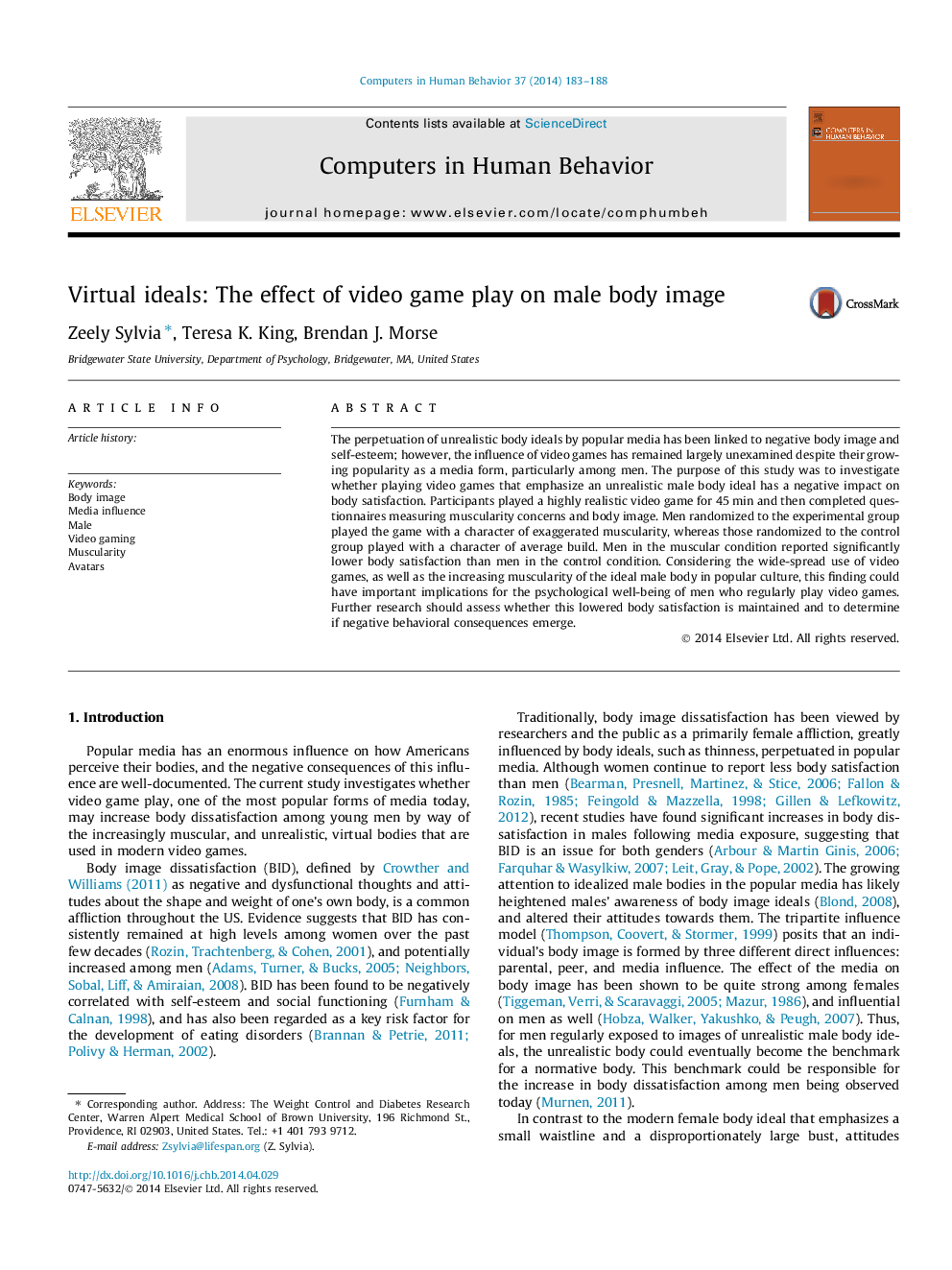| Article ID | Journal | Published Year | Pages | File Type |
|---|---|---|---|---|
| 6838993 | Computers in Human Behavior | 2014 | 6 Pages |
Abstract
The perpetuation of unrealistic body ideals by popular media has been linked to negative body image and self-esteem; however, the influence of video games has remained largely unexamined despite their growing popularity as a media form, particularly among men. The purpose of this study was to investigate whether playing video games that emphasize an unrealistic male body ideal has a negative impact on body satisfaction. Participants played a highly realistic video game for 45Â min and then completed questionnaires measuring muscularity concerns and body image. Men randomized to the experimental group played the game with a character of exaggerated muscularity, whereas those randomized to the control group played with a character of average build. Men in the muscular condition reported significantly lower body satisfaction than men in the control condition. Considering the wide-spread use of video games, as well as the increasing muscularity of the ideal male body in popular culture, this finding could have important implications for the psychological well-being of men who regularly play video games. Further research should assess whether this lowered body satisfaction is maintained and to determine if negative behavioral consequences emerge.
Related Topics
Physical Sciences and Engineering
Computer Science
Computer Science Applications
Authors
Zeely Sylvia, Teresa K. King, Brendan J. Morse,
